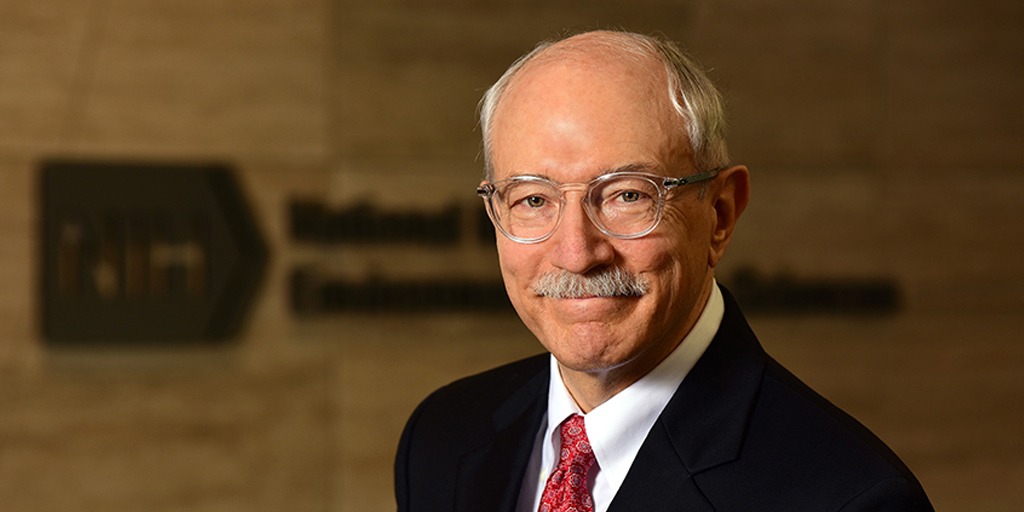NIEHS hosted the first seminar in a new National Institutes of Health (NIH) series addressing the human health effects of climate change, held virtually Aug. 16.
“If it is not abundantly clear from the heat waves, heavy precipitation, droughts, and tropical cyclones that we’re already experiencing, climate change is real, it is not a hoax, and it is caused by humans,” said NIEHS director Rick Woychik, Ph.D.
Woychik explained that there are things that scientists can do to counter the devastating impact of climate change, but they need to roll up their sleeves and get to work.
He said that the Biden administration has recognized that climate change research is important, and he pointed out that President Joe Biden’s proposed budget would include an additional $100 million for NIEHS. Woychik noted that with such funding, the institute would tackle climate change through collaborative efforts with other NIH institutes and centers.
An NIH-wide Climate Change and Health Working Group has already begun developing an expanded research agenda and created the new webinar series to explore issues in the field. NIEHS Senior Medical Advisor Aubrey Miller, M.D., co-chairs the working group with Joshua Rosenthal, Ph.D., from the Fogarty International Center, who moderated the seminar.
Trisha Castranio, who manages the NIEHS Global Environmental Health program, developed and organized the seminar.
Rising risks
 Ebi has conducted research on the health risks of climate variability and change for nearly 25 years. (Photo courtesy of Kris Ebi)
Ebi has conducted research on the health risks of climate variability and change for nearly 25 years. (Photo courtesy of Kris Ebi)Kris Ebi, Ph.D., from the University of Washington, presented the latest research on the human health risks associated with climate change and adaptation strategies to address them. According to a recent report from the United Nations Intergovernmental Panel on Climate Change, the earth has warmed 1.1 degrees Celsius higher than pre-industrial levels.
Ebi explained that a broad range of adverse health outcomes are also on the rise, including respiratory and cardiovascular disease, mental health issues, and premature death.
“But many of the health outcomes are understudied,” she said. “There’s a huge evidence gap, and a lot more work that needs to be done if we are going to be prepared for our changing climate.”
Ensuring that health interventions are timely and effective also is important, according to Ebi. She said that researchers should seek to understand not just the risks from climate change but also options for preventing avoidable injuries, illnesses, disabilities, and deaths.
Environmental injustice
Climate change affects different communities around the world very differently, said David Pellow, Ph.D., from the University of California, Santa Barbara.
“Low-income folks, people of color, immigrants, Indigenous folks, women, disabled folks, and people in the Global South all tend to be affected by climate change more than the rest of the world,” he said.
According to Pellow, the injustice is even more glaring because those populations have contributed the least to the problem, generating the fewest greenhouse gases.
Pellow shared case studies illustrating the disproportionate effect of climate change on vulnerable populations, particularly minorities and the incarcerated. He noted that more research is needed because in some cases, issues such as racism may worsen the health effects of climate change.
Data deluge
 Berhane is an expert on the development of statistical methods for a wide range of public health applications, particularly environmental health. (Photo courtesy of Kiros Berhane)
Berhane is an expert on the development of statistical methods for a wide range of public health applications, particularly environmental health. (Photo courtesy of Kiros Berhane)Kiros Berhane, Ph.D., from Columbia University, discussed the role of big data in climate science. Berhane explained that researchers interested in exploring the intersection of climate change and health now have new opportunities to collect data thanks to the proliferation of wearable devices, portable sensors, and satellites.
“The methods in data science and statistics that we deal with have to be scalable and easy to implement in real-time so that we can actually use this huge amount of information at our disposal,” he said.
Berhane suggested a few potential areas for future NIH funding, including joint efforts between climate scientists and health scientists, and more climate-relevant training for data scientists.
Citations:
Haines A, Ebi K. 2019. The imperative for climate action to protect health. N Engl J Med 380(3):263–273.
Faghmous JH, Kumar V. 2014. A big data guide to understanding climate change: The case for theory-guided data science. Big Data 2(3):155–163.
(Marla Broadfoot, Ph.D., is a contract writer for the NIEHS Office of Communications and Public Liaison.)
Source link
factor.niehs.nih.gov

